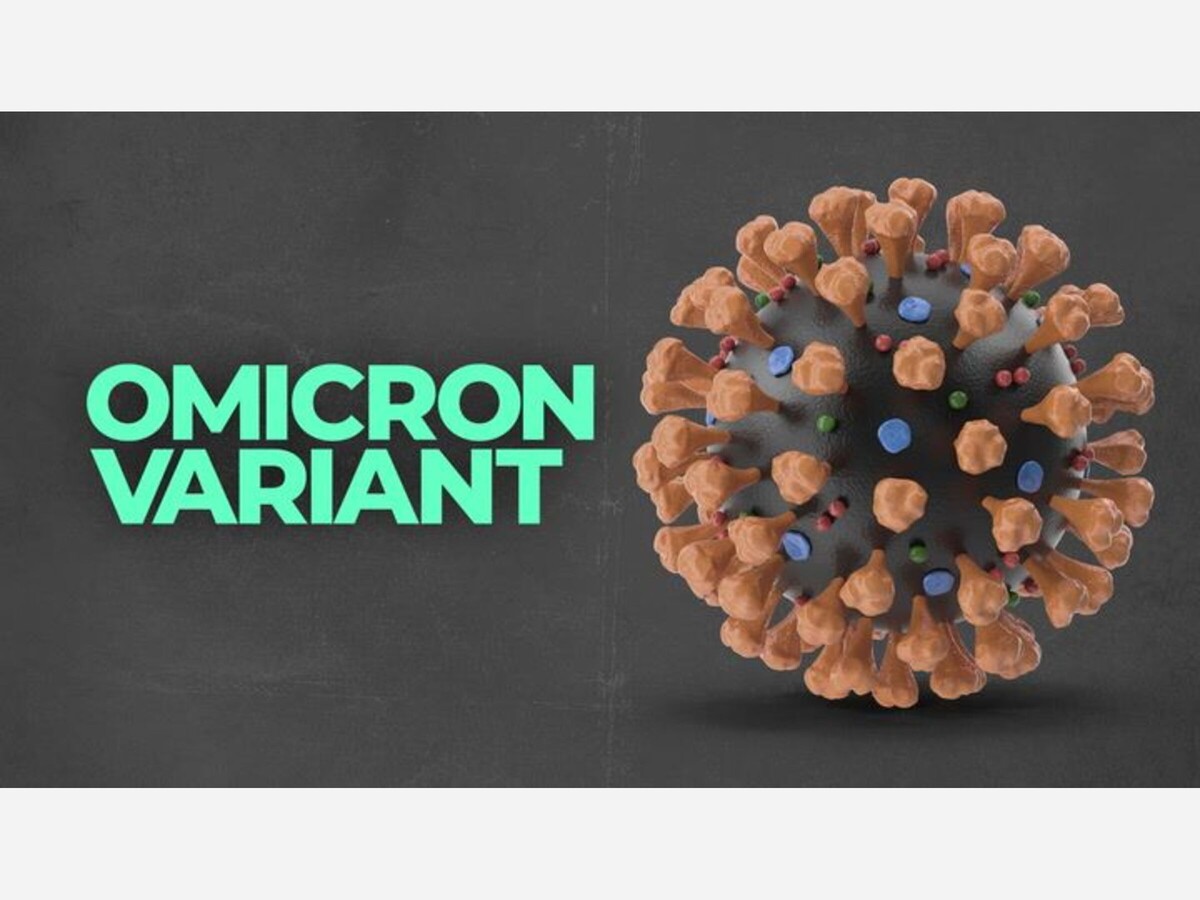Image

November 26, 2021 - The WHO classified a new COVID-19 variant, B.1.1.529, as a variant of concern and named the new strain Omicron. This classification comes from a specimen that was detected on November 9th in South Africa.
The variant reportedly has a large number of mutations that are of concern to public health officials. Preliminary evidence suggests the variant holds an increased risk of reinfection. Current COVID-19 PCR tests are effective in identifying the Omicron variant.
The detection and emergence of the Omicron variant have been taking place at faster rates than previous surges of infection indicating the new variant may have a "growth advantage."
For reference, the WHO has working definitions for COVID variants of interest (VOI) and variants of concern (VOC).
A VOI is classified as a variant whose genetic changes are predicted or known to affect virus characteristics such as transmissibility, severity, immune escape, and diagnostic or therapeutic escape. Additionally, VOI cause significant community transmission in multiple countries with increasing cases and emerging risk to global public health.
A VOC is classified by an increase in transmissibility or detrimental change in the COVID-19 epidemiology, or an increase in virulence or change in clinical disease presentation, or a decrease in the effectiveness of public health and social measure, available diagnostics, vaccines, or therapeutics.
The best way to protect yourself and others from the emerging variant of concern (VOC) is to get vaccinated.

The current variant of SARS-CoV-2 causing virtually all infections in the United States is the Delta variant. Delta is more than twice as transmissible as the original COVID variant first spotted in 2019 that began the pandemic.
Part of the reason why the virus is so widespread is that it is a generalist virus, meaning it is able to infect many different mammals, jumping from humans to animals and back. Zookeepers have identified cases of COVID-19 in lions, tigers, gorillas, and other captive animals.
The COVID-19 virus can change in two fundamental ways: 1. it can become more transmissible by binding better to receptors, replicating faster, and becoming more efficient at aerosol transmission. 2. the virus can mutate to better elude immunity, altering the physical shape of spike proteins on the virus surface making it a more elusive target for antibodies produced through prior infection or vaccines.
Thus far, the virus has taken the first route in becoming more transmissible. It is important to note that most mutations actually hurt the virus or have no effect on its severity or transmissibility. But small portions of the virus that alter in benefit to its evolution lead to new variants.
There are biological constraints to how efficient a virus can become at transmission, but these constraints are largely unknown and not fully understood. It's important to note here that a virus' evolution tends to favor transmissibility over severity. Therefore, the increase in transmissibility of new variants should not come as a surprise.
The main reason why COVID-19 has been able to mutate so successfully is that the virus still has plenty of hosts to infect. A decent portion of the globe and the United States is vaccinated, but the vaccination rate is not nearly high enough to slow the development of the disease to bring us out of the pandemic.
More unvaccinated people mean more hosts for the virus to mutate within and lead to more variants of concern that have the potential to reinfect those with previous immunity. Thus, simply having had COVID-19 and recovering from it does not protect you from future mutations of the virus.
The COVID-19 Omicron variant is the most recent example of this fact. People who have recovered from COVID-19 and claim immunity are not protected from this variant or any new mutations of the virus. The same may come true for those who received vaccines, however at this point we do not know how effective the vaccine is against Omicron.
Comfort can be found in the fact that this new variant of concern is being closely monitored and we will son know if the COVID vaccines are effective in preventing serious disease and death from the new variant. Even if the vaccines do not stand up well against Omicron, more research will lead to better, more effective vaccines to protect us from emerging variants.
The people who should be the most concerned are those who are not vaccinated. Not only do they stand a greater risk of serious illness and death, but unvaccinated people allow the virus to mutate and evolve within them leading to new variants that could elongate this pandemic for an unforeseen amount of time.
It has become clear that "natural immunity" is not a logical solution to this virus. COVID-19 has been able to mutate and evolve at paces that make natural immunity nearly impossible. To best protect yourself and loved ones from the COVID-19 virus get vaccinated.
Sources:
https://www.cdc.gov/coronavirus/2019-ncov/variants/variant.html
https://www.cdc.gov/media/releases/2021/s1126-B11-529-omicron.html
https://www.who.int/news/item/26-11-2021-classification-of-omicron-(b.1…
https://www.washingtonpost.com/health/2021/10/18/coronavirus-mutations/
https://www.washingtonpost.com/health/2021/11/26/faq-new-variant-omicro…